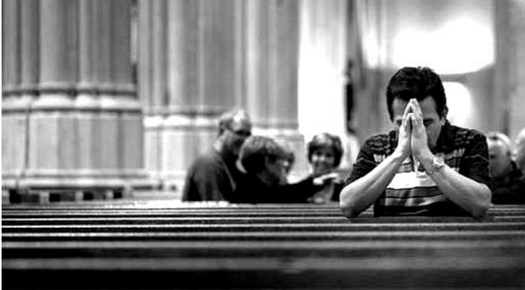
According to Gallup poll, one in five American adults does not formally identify with any particular religion. This is a five-percentage point increase since 2008. Even though three quarters of Americans still associate with Christianity, according to the poll, five percent fewer do so than seven years ago. Almost the entire decrease in Christian affiliation has been constituted by an increase of the religiously unaffiliated, as the number of those adhering by non-Christian religions has remained more or less unchanged. Of all the religiously affiliated, 94 percent identify with Christianity.
This recent survey corroborates a study that was conducted by Pew Research Center last year, which revealed a shocking dip in American religiosity and a steep rise of the religious nones. According to Pew Research Center, the only religions that grew from 2007 to 2014 include Islam, which increased by 0.5 percent, Hinduism, which increased by 0.3 percent and the extensive category of other religions, which is comprised of everything from Wicca to Bahai to Satanism. The actual rise was among those who professed no religion at all.
The demographics of believers who were interviewed by Gallup suggest that Christianity would continue to fall in the United States through the near future. The demographics also established that affiliation with Christianity has a direct correlation with age, with the highest rate of adherence among the elderly and the lowest rate among the youth. Though some of the youth are expected to become more religious over time, most of them are not, and so the entire American population would continue its trend away from religion, with all other factors remaining unchanged.
At the moment, among those aged between 18 and 24, only 62 percent associate with Christianity and 31 percent with no religion at all. Among those aged 45 to 49 years, 79 percent associate with Christianity and 16 percent with no religion. In the 85 – 89 age bracket, 88 percent associate with Christianity and eight percent with no religion.
The trend away from religion in the United States is not a new occurrence, as it has been verified over several decades. According to Gallup polls that were conducted during the 1950s, more than 90 percent of America’s adult population associated with Christianity and only a handful claimed no religious affiliation.
It is widely believed that America’s loss of religiosity has been accompanied by a liberalization of morality. Statistics from another Gallup poll that was conducted last year show that Americans’ moral views have become significantly more liberal as religious affiliation has declined, with American citizens now approving of behavior that they would have thought of as sinful or immoral only a generation ago. Even though the most radical change has been observed in Americans’ positive moral evaluation of human cloning and polygamy, approval of homosexual relations has also increased during the same period, with a majority of 63 percent now feeling nothing awkward with regards to gays and lesbians as opposed to 40 percent in 2001.
Photo Credits: The Blaze
